Three equal charges q are placed at the corners of an equilateral triangle of side A.
(i) Find out potential energy of charge system.
(ii) Calculate work required to decrease the side of triangle to a/2.
(iii) If the charges are released from the shown position and each of them has same mass m, then find the speed of each particle when they lie on triangle of side 2a.
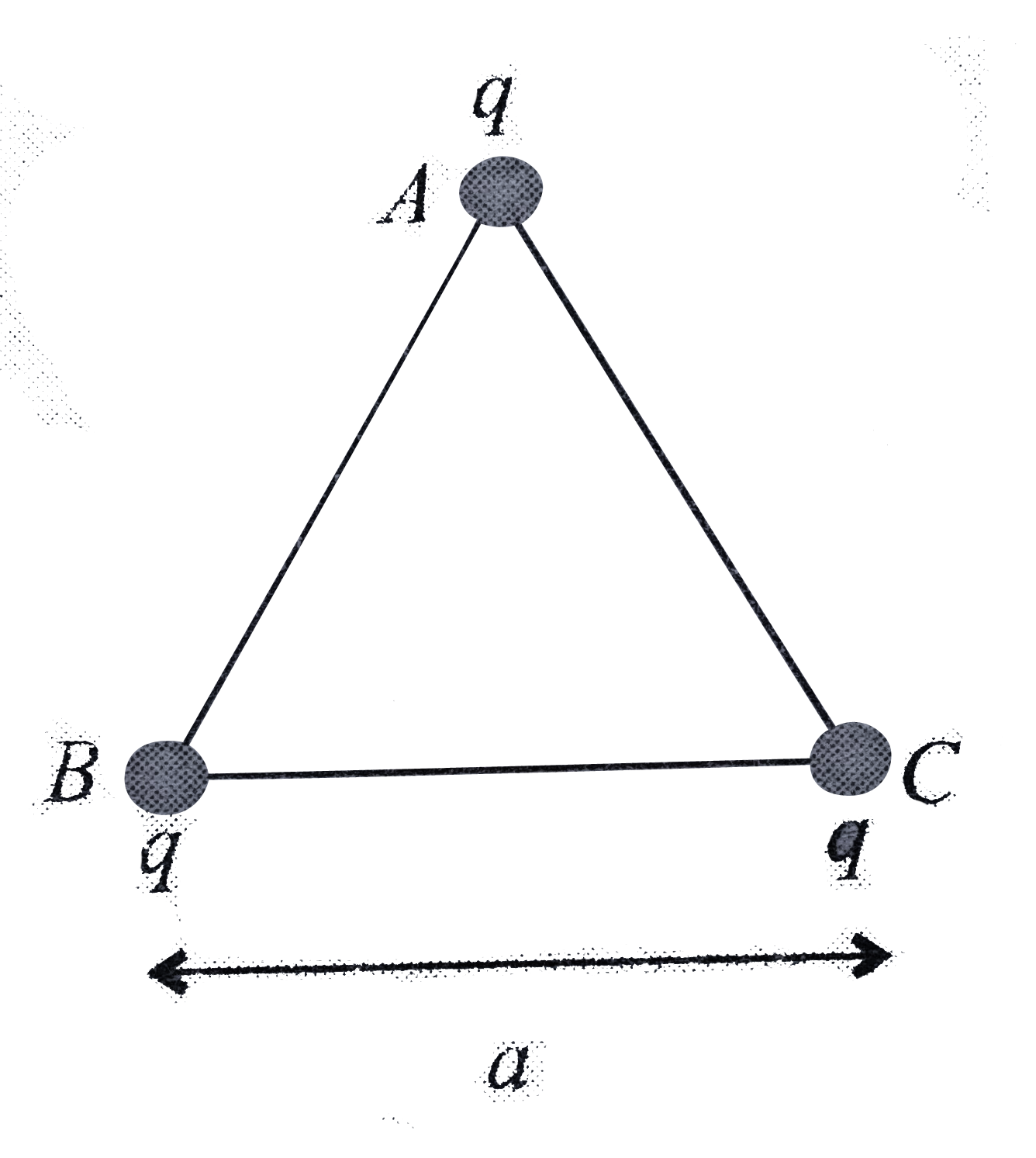 .
.
(i) Method I (Derivation)
Assume all the charges are at infinity. Work done in putting charge q at corner A
⇒W1=q(vf−vi)=q(0−0)
Since potential at A is zero in absence of charges, work done in putting q at corner B if presence of charge at A :
⇒W2=(Kqa−0)q=Kq2a
similarly work done in putting charge q at corner C in presence of charge at A and B.
⇒W3=q(vf−vi)=q[(Kqa+Kqa)−0]=2Kq2a
So net potential energy PE=W1+W2+W3=0+Kq2a+2Kq2a=3Kq2a
Method II (using direct formula) :
U=U12+U13+U23=Kq2a+Kq2a+Kq2a=3Kq2a
(ii) Work required to decrease the sides W=Uf−Ui=3Kq2a/2−3Kq2a=3Kq2a Joules
(iii) Work done by electrostatic forces - Change is kinetic energy of particles.
Ui−Uf=Kf−Ki ⇒3Kq2a−3Kq22a=3(12mv2)−0⇒v=√Kq2am
Topper's Solved these Questions
- ELECTROSTATICSBOOK - RESONANCE ENGLISHCHAPTER - ELECTROSTATICSEXERCISE - Problems
22 Videos
- ELECTROSTATICSBOOK - RESONANCE ENGLISHCHAPTER - ELECTROSTATICSEXERCISE - Exercise-1 Section (A)
9 Videos
- ELECTROMAGNETIC INDUCTIONBOOK - RESONANCE ENGLISHCHAPTER - ELECTROMAGNETIC INDUCTIONEXERCISE - A.l.P
19 Videos
- EXPERIMENTAL PHYSICSBOOK - RESONANCE ENGLISHCHAPTER - EXPERIMENTAL PHYSICSEXERCISE - PART -II
10 Videos
Similar Questions
Six equal point charges q each are placed at six corners of a hexago of side a. Find out potential energy of charge system
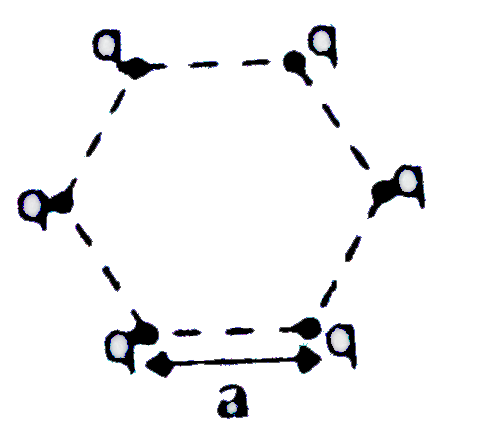
View SolutionFour identical point charges q are placed at four corners of a square of side a. Find the potential energy of the charge system.
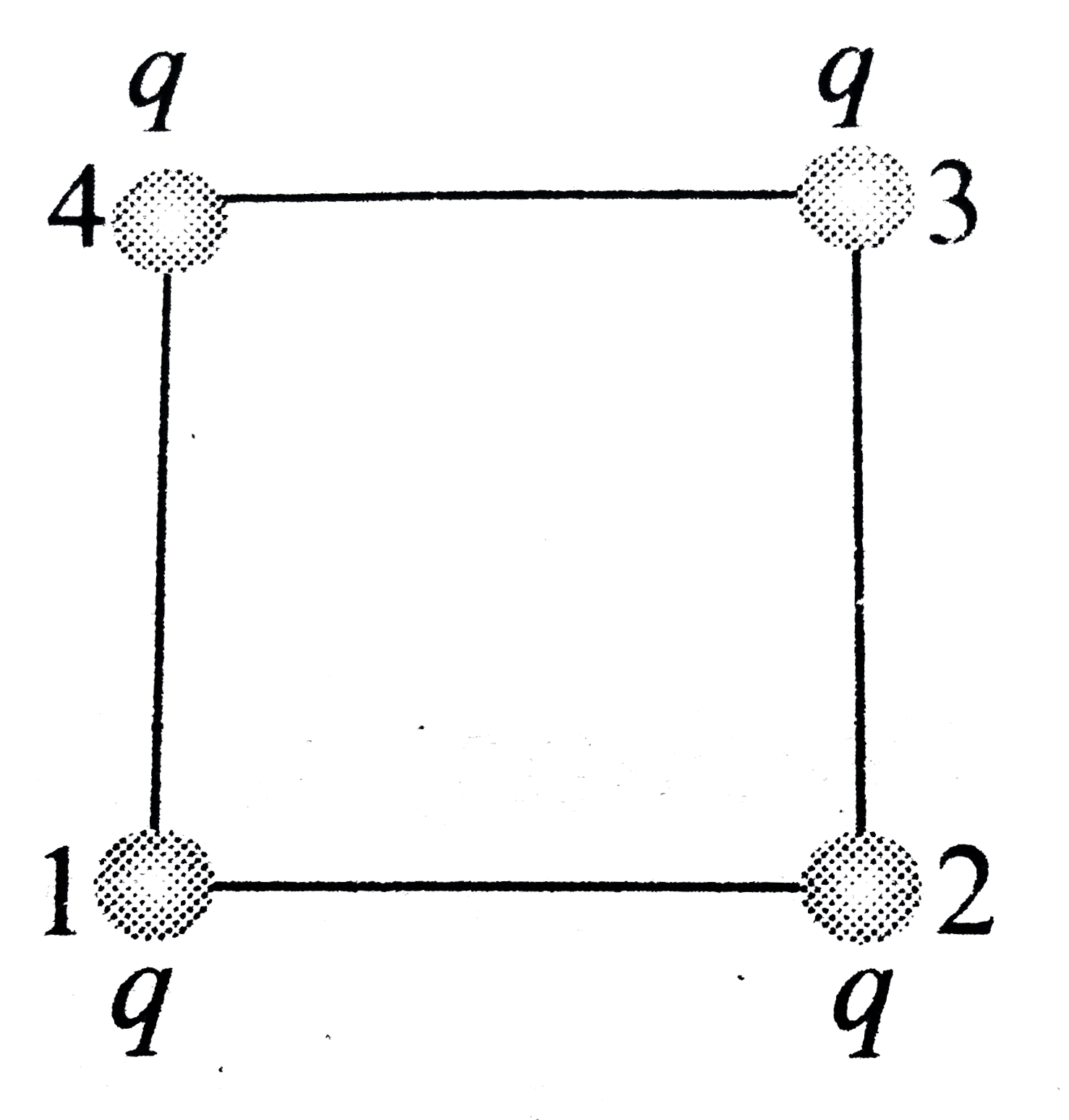 .
.
View SolutionThree equal charge q0 each are placed at three corners of an equilateral triangle of side 'a'. Find out force acting on one of the charge due to other two charges ?
View SolutionFour identical charges q are placed at the corners of a square of side a. Find the potential energy of one of the charges due to the remaining charges.
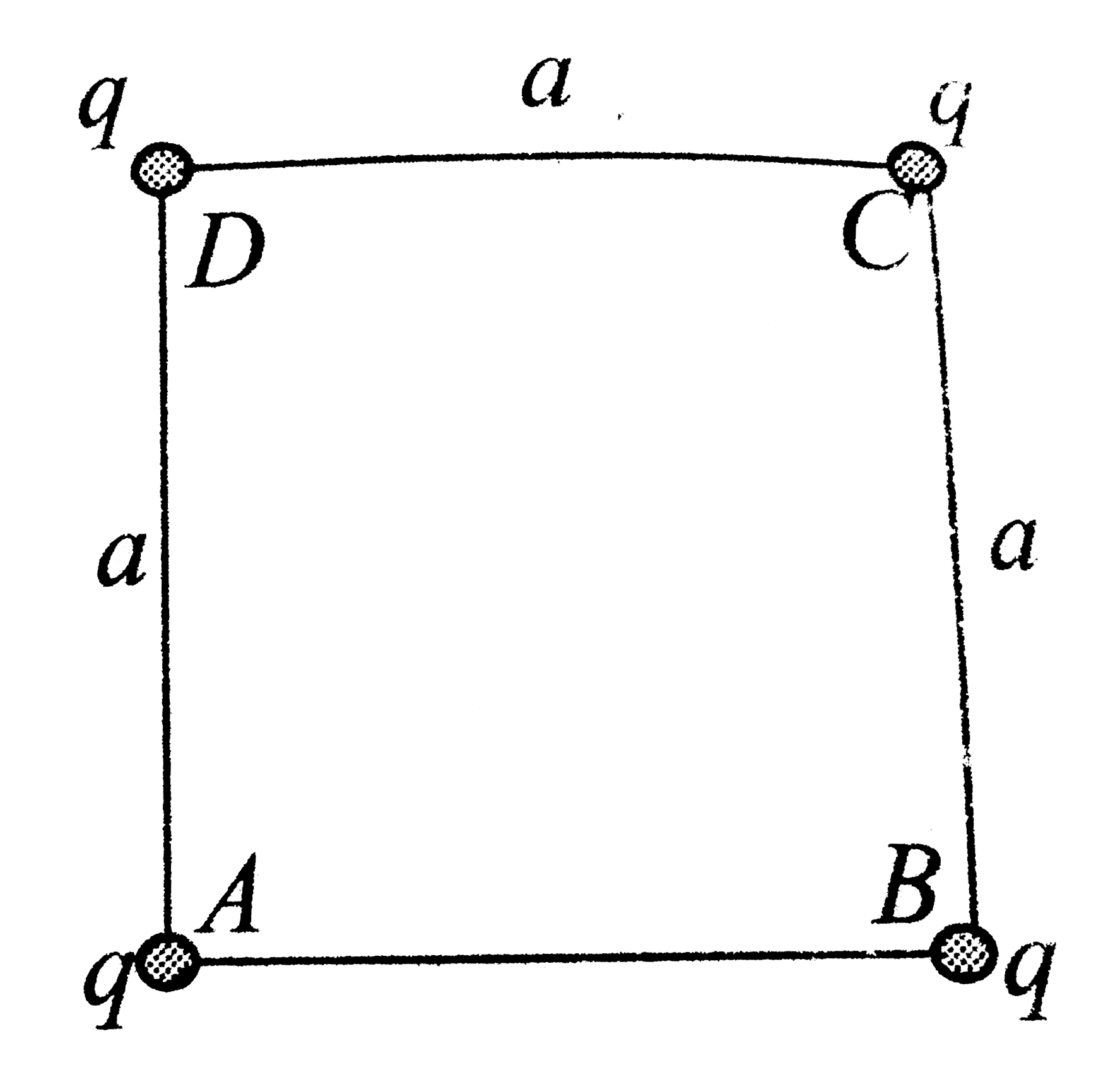 .
.
View SolutionThree identical charges are placed at corners of a equilateral triangel of side l. If force between any two charges is F, the work required to double the dimensiions of triangle is
View SolutionThree identical charges are placed at corners of a equilateral triangel of side l. If force between any two charges is F, the work required to double the dimensiions of triangle is
View SolutionThree particle each of mass m are placed at the corners of equilateral triangle of side l
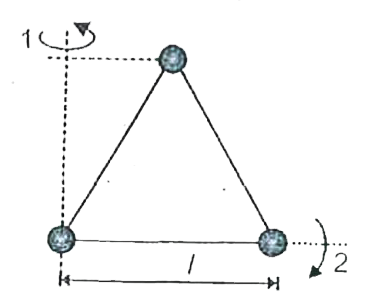
Which of the following is/are correct ?
View SolutionThree point charges q are placed at three vertices of an equilateral triangle of side a. Find magnitude of electric force on any charge due to the other two.
View SolutionFind the area of an equilateral triangle having each side x cm
View SolutionThree particle of mass m each are placed at the three corners of an equilateral triangle of side a. Find the work which should be done on this system to increase the sides of the triangle to 2a.
View Solution